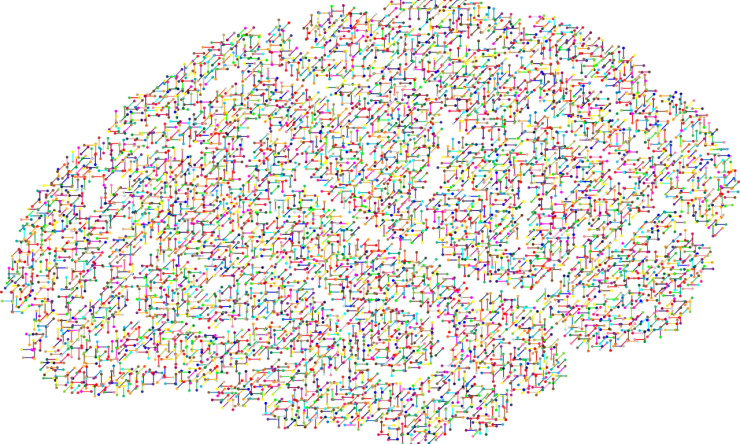Study finds DBS increasingly viable option for treatment-resistant OCD
In the fight against treatment-resistant obsessive-compulsive disorder (OCD), one option, deep brain stimulation (DBS), is slowly gaining popularity since its inception nearly 20 years ago. DBS works similarly to a pacemaker and is used to treat certain neurological and psychiatric disorders.
As the use of DBS to alleviate OCD continues to increase, a group of researchers led by a team at Baylor College of Medicine sought to understand the efficacy of the treatment by using data collected from earlier studies. The group’s research, recently published in the Journal of Neurology, Neurosurgery, and Psychiatry, provides evidence that DBS can improve OCD as well as other related depression symptoms in certain patients.
“This paper is what we call a systematic review and meta-analysis, which is a methodology that takes all of the literature that is available so far and rigorously analyzes it,” explains contributing author Dr. Sameer Sheth, associate professor, Cullen Foundation Endowed Chair, McNair Scholar and vice chair of research in the Department of Neurosurgery at Baylor. “The advantage to doing so is that while we perform more DBS cases for OCD than other places in the country, with meta-analysis, we are taking scores of cases from around the country and around the world and synthesizing all the information so we can have a better, more general understanding of what this therapy does in an even larger group of patients.”
By opening the pool of data surveyed in the study to include evidence from the world, the researchers were able to provide a zoomed-out view of DBS case results and also were able to account for potential biases from smaller studies.
Baylor medical student Ron Gadot explains the methodology used by the group. “As many of the studies regarding this established but underutilized therapy have incorporated small samples with varying methodologies, we performed novel sensitivity analyses that show that the demonstrated outcomes are not biased by small study effects. Our rigorous risk of bias analyses provides a foundation for crucial discussions regarding the optimization of study methodology going forward.”
Of the 34 included studies, which included a total of 352 patients, 66% of patients fully responded to the DBS at last follow-up. Dr. Wayne Goodman, professor and D.C. and Irene Ellwood Chair for the Menninger Department of Psychiatry and Behavioral Sciences, summarizes the group’s findings. “DBS is a viable option for treatment-resistant OCD that can be expected to produce significant clinical benefit in about two out of three cases. [This study] offers hope for patients with severe symptoms of OCD whose disorder did not respond to a range of conventional therapies.”
Though DBS for OCD has been an approved therapy by the U.S. Food and Drug Administration since 2009, very few individuals who could benefit are able to receive it. Reasons for this gap include lack of awareness and challenges with insurance coverage. The group hopes that the results of their study will help increase awareness for DBS as a viable treatment for OCD and convince insurance companies to cover it more routinely.
“I think that is the biggest message to get across — this is an effective method; it has been approved for a long time. It is underutilized,” said Sheth.
“The demonstrated effects of DBS in this report are even more impressive when one considers that these patients have failed numerous behavioral and pharmacological therapies. Having such a robust treatment when first- and second-line interventions are incomplete provides hope to those suffering,” said Dr. Eric Storch, professor and vice chair for the Department of Psychiatry and Behavioral Sciences at Baylor.
The study was supported by the McNair Foundation, the Dana Foundation, the National Institute of Mental Health (1RF1MH121371), and the Eunice Kennedy Shriver National Institute of Child Health & Human Development of the National Institutes of Health (P50HD103555). See publication for a full list of disclosures.
Others who took part in the study include: Ricardo A. Najera BS BA and Adrish Anand BA, with Baylor College of Medicine, Samad Hirani, with Trinity University, and Ben Shofty MD PhD, with Baylor during the majority of the study, currently with the University of Utah.
DBS for OCD workshop for physicians
In order to increase access of this therapy, Drs. Wayne Goodman, Eric Storch and Sameer Sheth of the Menninger Department of Psychiatry and Behavioral Sciences and Department of Neurosurgery, will host a one-day DBS for OCD workshop for physicians and medical professionals on Friday, October 14 to provide instruction on best practices for this underutilized intervention. The workshop will be held at the Laura Hotel, 1070 Dallas, St. Houston, TX 77002. In addition to morning sessions on history, candidacy, pre-surgical therapies and ethics, there will be longer case-based sessions in the afternoon focused on surgical targeting and device programming. Support for the workshop is provided by a grateful DBS patient. Register now.











